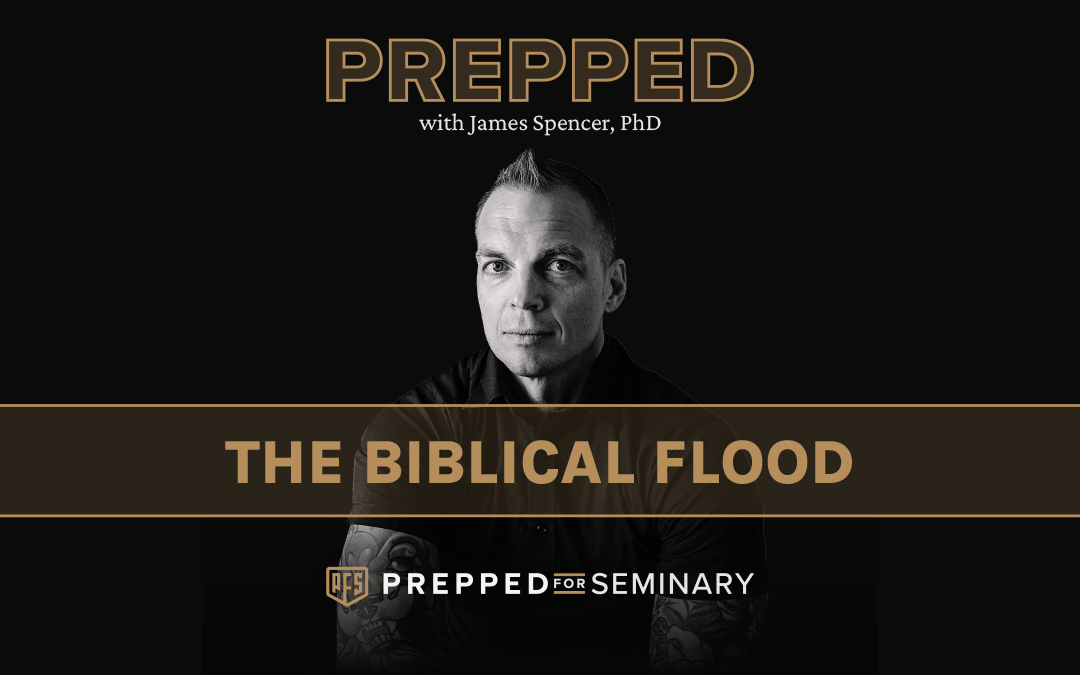https://podcast.preppedforseminary.com/the-biblical-flood/
What Does the Flood Teach Us About God?
The story of Noah’s flood is one of the most well-known accounts in the Bible. But this narrative carries deep theological meaning beyond the ark, the animals, and the rain.
Genesis 6–9 isn’t just about water covering the earth—it’s about God’s judgment, mercy, and covenantal faithfulness. It’s a story of decreation and recreation—where God undoes creation and then restores it, showing His sovereign control over history.
But what does the flood teach us about our faith today?
In this post, we’ll explore:
- The flood as an act of decreation and recreation
- Different views on whether the flood was global or regional
- How Noah foreshadows Jesus as a new Adam
- Why this story matters for believers today
Let’s jump in.
The Flood as Decreation and Recreation
In Genesis 1, God creates order from chaos. He separates the waters above from the waters below, brings forth dry land, and fills the earth with life.
But in Genesis 6–9, the flood reverses that order:
- The waters burst forth, covering the land (Gen. 7:11).
- The earth returns to a formless and void state (Gen. 1:2).
- Humanity is wiped out—except for Noah and his family.
It’s decreation—the undoing of what God once called very good. But even in judgment, God’s purpose is not destruction but renewal.
After the flood, God brings forth dry land again. Noah and his family step into a renewed world, and God reaffirms His covenant with humanity (Gen. 9:1–17).
Was the Flood Global or Regional?
- Scholars and theologians have debated whether the flood was:
- A worldwide catastrophe that covered the entire planet.
- A regional event that wiped out humanity’s known world.
- A historical event with theological significance rather than a strictly scientific account.
The Case for a Global Flood
- Genesis 7:19 states, “All the high mountains under the whole heaven were covered.”
- Universal language, like “all flesh,” suggests a worldwide judgment.
- Many young earth creationists argue that fossil layers and geological evidence support a global flood.
The Case for a Regional Flood
- The Hebrew word for “earth” (eretz) can mean “land” or “region,” not necessarily the whole planet.
- Ancient cultures had a limited understanding of the world’s size, so their “whole world” might refer only to the Mesopotamian basin.
- Archaeology shows evidence of large-scale ancient floods in that region.
A Theological Perspective
Regardless of scope, the flood account is about God’s sovereignty, judgment, and mercy. It teaches us that:
- Sin leads to consequences.
- God preserves a faithful remnant.
- He remains steadfast in His promises.
Rather than getting caught up in the science, we should focus on what the story reveals about God.
Noah: A New Adam in a Broken World
Noah isn’t just a survivor—he’s presented as a new Adam.
Parallels Between Adam and Noah
- God gave Adam dominion over creation (Gen. 1:28). → God reaffirms this to Noah (Gen. 9:1–7).
- Adam and Eve fell through eating fruit (Gen. 3:6). → Noah stumbles through wine (Gen. 9:20–21).
- Adam’s sin leads to a cursed world (Gen. 3:17–19). → Noah’s son Ham is cursed after dishonoring his father (Gen. 9:22–25).
This shows that sin still corrupts the human heart even after the flood. The flood wasn’t the ultimate solution—only Jesus Christ, the true second Adam, can bring full restoration (Romans 5:12–21).
The Flood and Jesus: A Foreshadowing of Salvation
The ark that saved Noah is a symbol of Christ.
1 Peter 3:20–21 connects Noah’s flood to baptism, saying that we are saved through Christ’s death and resurrection, just as Noah was saved through water.
Just as the flood washed away sin, Christ cleanses us completely.
- Noah and his family were sealed inside the ark → We are sealed in Christ (Eph. 1:13).
- The ark carried them through judgment → Jesus bore God’s judgment for us.
- They entered a new world → We are made new in Christ (2 Cor. 5:17).
The flood points us forward to the final judgment, where only those in Christ will be saved.
What Can We Learn from the Flood Today?
The flood narrative is not just ancient history—it holds profound lessons for us today.
1. God Takes Sin Seriously
The world before the flood was filled with violence and corruption (Gen. 6:5–11). Sin still runs rampant today, but God’s holiness has not changed.
2. God Provides a Way of Salvation
Noah was saved by obeying God and entering the ark. Likewise, our salvation comes through obedience to Christ—trusting in His sacrifice and resurrection.
3. God’s Mercy Triumphs Over Judgment
Even after righteous judgment, God makes a covenant never to destroy the earth by flood again (Gen. 9:11). His ultimate plan is redemption, not destruction.
Final Challenge: Take Action This Week
This week, reflect on what the flood teaches about your relationship with God:
- Are there areas of sin in your life that need to be surrendered?
- Are you fully trusting in Christ as your ark of salvation?
- How can you live in greater obedience to God’s will?
Reflection Questions:
- How does the flood story shape your view of God’s judgment and mercy?
- What parallels do you see between Noah’s story and your walk with Christ?
- Are you living in obedience like Noah, or are you resisting God’s call?
- How can you trust in God’s promises more fully this week?
➡ Let’s commit to walking in obedience, trusting in God’s mercy, and finding our salvation in Christ alone.
